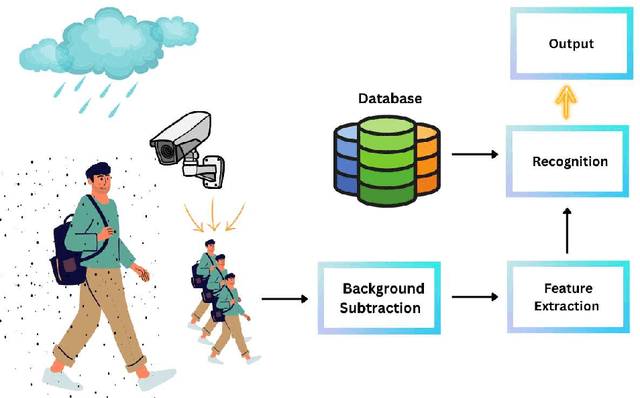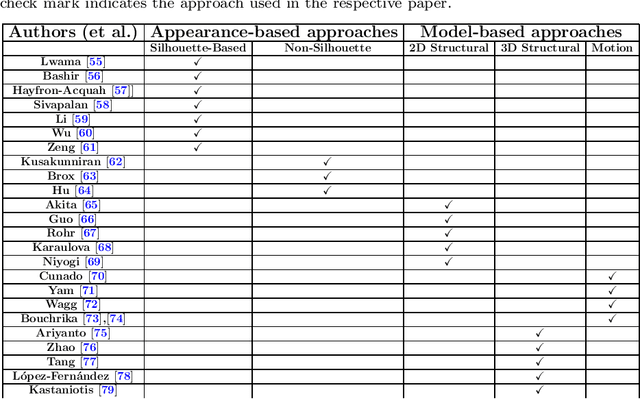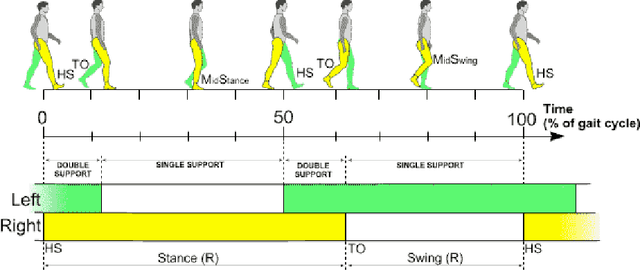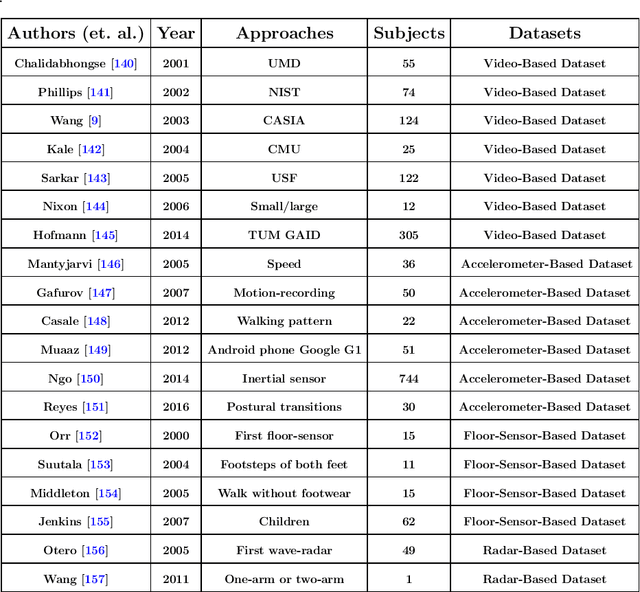Human Gait Recognition using Deep Learning: A Comprehensive Review
Paper and Code
Sep 18, 2023



Gait recognition (GR) is a growing biometric modality used for person identification from a distance through visual cameras. GR provides a secure and reliable alternative to fingerprint and face recognition, as it is harder to distinguish between false and authentic signals. Furthermore, its resistance to spoofing makes GR suitable for all types of environments. With the rise of deep learning, steadily improving strides have been made in GR technology with promising results in various contexts. As video surveillance becomes more prevalent, new obstacles arise, such as ensuring uniform performance evaluation across different protocols, reliable recognition despite shifting lighting conditions, fluctuations in gait patterns, and protecting privacy.This survey aims to give an overview of GR and analyze the environmental elements and complications that could affect it in comparison to other biometric recognition systems. The primary goal is to examine the existing deep learning (DL) techniques employed for human GR that may generate new research opportunities.
 Add to Chrome
Add to Chrome Add to Firefox
Add to Firefox Add to Edge
Add to Edge